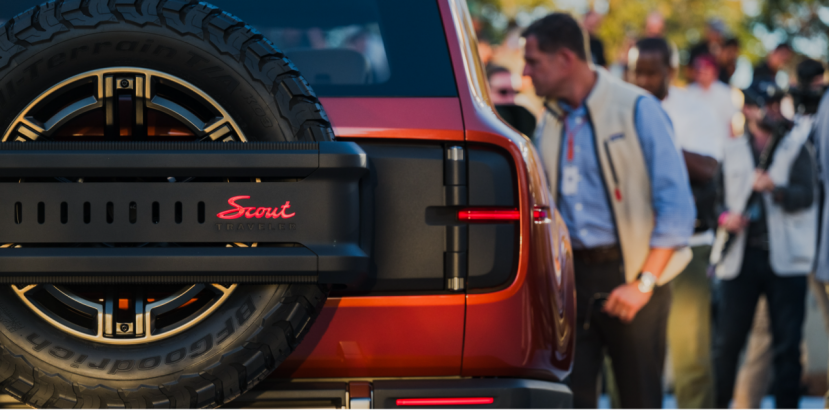According to reports, Scout Motors, a subsidiary of the Volkswagen Group, has submitted a request to the U.S. government urging it to take all necessary measures to abolish state automobile franchise laws. The company argues that these laws impose 'heavy restrictions on competition' and seeks to pave the way for direct sales to consumers. The request was submitted by Blair Anderson, Vice President of Government and Regulatory Affairs at Scout Motors, in an 11-page letter to the U.S. Department of Justice's antitrust task force, which was established in March. The task force was formed following two executive orders signed by President Trump in January and February aimed at reducing the regulatory burden on the American people. Scout Motors plans to launch production in the U.S. in 2027 and intends to sell its Terra pickup and Traveler SUV using a direct sales model through experience centers, quick transactions, stores in major U.S. markets, and a flexible national service network. The company announced the two non-body-on-frame light truck models last October and confirmed its intention to bypass the traditional dealership system and Volkswagen Group's own dealer network to sell vehicles directly to consumers. Historically, Volkswagen Group dealers have called for an increase in the supply of pickups and SUVs. Anderson stated in his letter dated May 23 that the outdated state automobile franchise laws, which were established decades ago to address past circumstances, have evolved into a legal umbrella protecting the existing dealer network and preventing the existence of other business models, let alone competing with the current dealer network. He explicitly expressed concern that the existing and pending state automobile dealer franchise laws threaten Scout Motors' ability to sell and service vehicles in all 50 states. Anderson claimed that no industry in the U.S. economy has more anticompetitive laws obstructing innovation, economic growth, and consumer welfare than the U.S. automotive industry and state dealer franchise laws. He urged the U.S. Department of Justice and the Trump administration to thoroughly investigate these protectionist and anticompetitive strategies and open the space for fair competition and innovation in the U.S. automotive industry. He argued that it is unreasonable to force emerging manufacturers to adopt the dealer franchise model in the initial stages, especially when the manufacturer has never asked any dealer to invest in the distribution of its vehicles, has developed more efficient alternatives, and will not sell models similar to those already offered by franchise dealers. In response to the reports, Scout Motors declined to comment further. State automobile franchise laws have quickly become a legal obstacle for Scout Motors. In February, a bill in South Carolina that would have allowed Scout Motors to sell directly to consumers like U.S. electric vehicle manufacturers Tesla, Rivian, and Lucid failed to pass. Similarly, in February, a group of Volkswagen and Audi dealers in Florida filed a lawsuit trying to prevent Scout's direct sales retail model, alleging that the company's booking system violated state laws. These dealers claimed in their lawsuit that Scout Motors should be prohibited from accepting vehicle reservations in Florida and that the brand should be banned from operating in the state due to a lack of a manufacturer’s license. Scout Motors is set to start accepting a $100 refundable deposit for the Traveler SUV and Terra pickup on October 24, 2024; however, dealers argue that this deposit is essentially a down payment against the final purchase price. In April, the California New Car Dealers Association also filed a similar lawsuit against Scout Motors, Volkswagen Group, Volkswagen America, and Volkswagen Group America. The National Automobile Dealers Association (NADA) has vowed to block manufacturers’ plans to sell vehicles directly to consumers and has challenged such efforts in court and state legislatures. In March, NADA sent a letter to VW Group CEO Oliver Blume and other senior executives urging them to change their strategy. As of July 16, NADA had not received a response. NADA's Senior Vice President of Regulatory Affairs, Daniel Ingber, wrote in a letter to the Department of Justice in May: 'Franchised car dealers and their protective laws enhance competition in the U.S. new car market and benefit consumers. While there are anonymous attacks on the franchise system, all empirical evidence indicates that it has a positive effect.' To defend the direct sales model, Volkswagen Group and Scout Motors assert that the Scout truck brand is independent and autonomous, a claim that has been questioned by dealers. In April, at the New York Auto Forum, Bernie Moreno, a Republican senator from Ohio and former car dealer, expressed his confusion about the situation, stating, 'Frankly, I don’t understand the current state. The dealer franchise model has worked well and benefits both parties.' Moreno expressed optimism about Scout Motors' shift in direction.
Scout Motors Calls for Abolishment of State Franchise Laws in the U.S.

Share this post on: